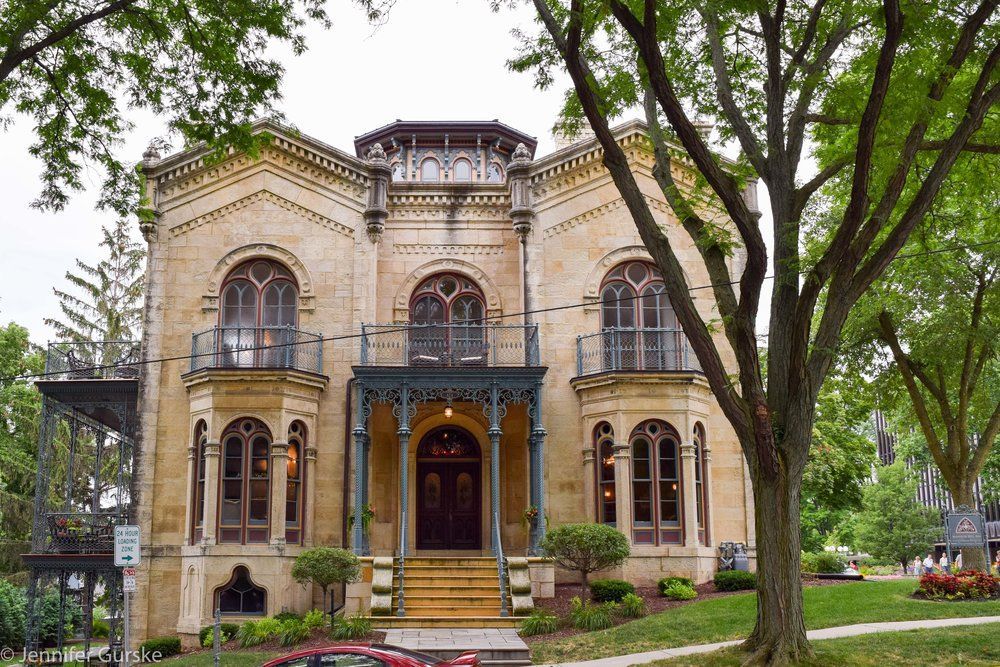Gabbi knew that real estate was the right career from the start. She is now dual licensed in both Kentucky and Ohio. She had her first sale within a month of getting licensed and hit her first million in sales volume within her first 6 months. She will have her real estate license for the rest of her life. Call her anytime if you have questions about becoming a real estate agent. She loves to share her passion for real estate with others!
Flood Zones & Historical Districts
Flood zones and historical districts are two distinct yet interconnected concepts that are critical for understanding the environmental and cultural context of a particular area. Flood zones refer to areas of land that are prone to flooding, while historical districts are designated areas that have a significant cultural, historical, or architectural significance. Both flood zones and historical districts have a significant impact on the development, planning, and preservation of a community. Understanding the relationship between these two concepts is essential for creating sustainable and resilient communities that preserve both the natural and cultural heritage of an area.
Flood Zones
What is a flood zone and how does it impact the buying experience?
A flood zone is an area that's at risk of flooding. It's determined by the government and based on things like the elevation of the land and the proximity to bodies of water. The idea is that if it rains a lot or there's a big storm, there's a higher chance that the area will flood.
Now, being in a flood zone doesn't necessarily mean that your house is going to flood. But it does mean that there's a higher risk, so you may need to take some precautions. For example, you might need to get flood insurance, which is insurance that covers damage from flooding. And if you're looking to buy a house in a flood zone, you'll want to do some extra research to make sure you're comfortable with the risks and the potential impact on the property value.
When purchasing a house in a flood zone, there are several important factors that can impact the buying process. The first and most important factor is the increased risk of flooding and potential damage to the property. This means that lenders and insurance companies will view the property as a higher risk, which can lead to more stringent lending requirements and higher insurance premiums. Additionally, homeowners may be required to purchase flood insurance, which can be expensive and may need to be renewed annually.
Another important factor to consider when purchasing a house in a flood zone is the potential impact on the resale value of the property. Properties in flood zones may be more difficult to sell in the future, as buyers may be hesitant to purchase a property with a history of flooding or that is at risk of flooding in the future. This can also impact the appraised value of the property, which can lead to difficulties securing financing or negotiating a fair price. Overall, purchasing a house in a flood zone can be a complex process that requires careful consideration of the potential risks and impacts on the buying and selling process.
What is flood insurance?
Flood insurance is a type of insurance that's specifically designed to help you cover the costs of damage caused by flooding. It's different from your regular homeowners insurance, which typically doesn't cover flood damage.
It's worth noting that flood insurance is often sold separately from your regular homeowners insurance, so you might need to buy it as an additional policy. And the cost can vary depending on a bunch of factors, like the level of risk in your area, the value of your property, and the deductible you choose.
Overall, if you live in a flood-prone area, flood insurance can be a really good idea to help protect your home and your wallet from the costs of flood damage.
HISTORICAL DISTRICTS
What is a historical district and how does it impact the buying experience?
A historical district is an area that's been designated by the government as having significant historical or cultural value. This could be because of the architecture, the people who lived there, or other important events that happened in the area.
If you live in a historical district, it can impact your living experience in a few different ways. For one thing, there might be some restrictions on what you can do with your property. For example, you might need to get approval from a historical preservation board before making any major changes to the exterior of your house.
But there are also some potential benefits to living in a historical district. For one thing, the area might be really beautiful and interesting, with lots of unique architecture and cultural landmarks. And because the area is designated as historically significant, there might be a greater sense of community pride and involvement in preserving the area's heritage.
Overall, living in a historical district can be a unique and rewarding experience, but it's important to be aware of the potential restrictions and responsibilities that come with it.
Does living in a historical district impact you financially?
Living in a historical district can impact you financially in several ways. One potential benefit is that your property values might be higher due to the area's historical significance and unique character. However, there may also be some extra costs associated with living in a historical district, such as higher property taxes or the need to maintain the historical integrity of your property.
Additionally, there might be some restrictions on what you can do with your property, such as limitations on exterior alterations or required materials for repairs or renovations. These restrictions can impact your ability to make changes to your property that might increase its value or functionality, and could also lead to higher costs for renovation or maintenance projects.
Finally, some historical districts may offer financial incentives for preserving the historical character of the area, such as tax credits or grants for restoration projects. These incentives can help offset some of the costs of living in a historical district, but may also come with specific requirements or limitations. Overall, living in a historical district can impact your finances in both positive and negative ways, and it's important to carefully consider the potential costs and benefits before making a decision to buy or live in a historical district.
We hope that this article was helpful. When you are making a decision on buying a house, the biggest thing you can do for yourself is learn as much as possible. Then you can make an informed decision that best serves you and your goals. Thanks for reading and check back to the Career Corner for more articles.
About the Author
Read More Posts
Let's Stay Connected
Follow us on and become part of the PREC community
Never miss a tweet by connecting with us on Twitter
Check our our posts about trends in real estate industry and market









